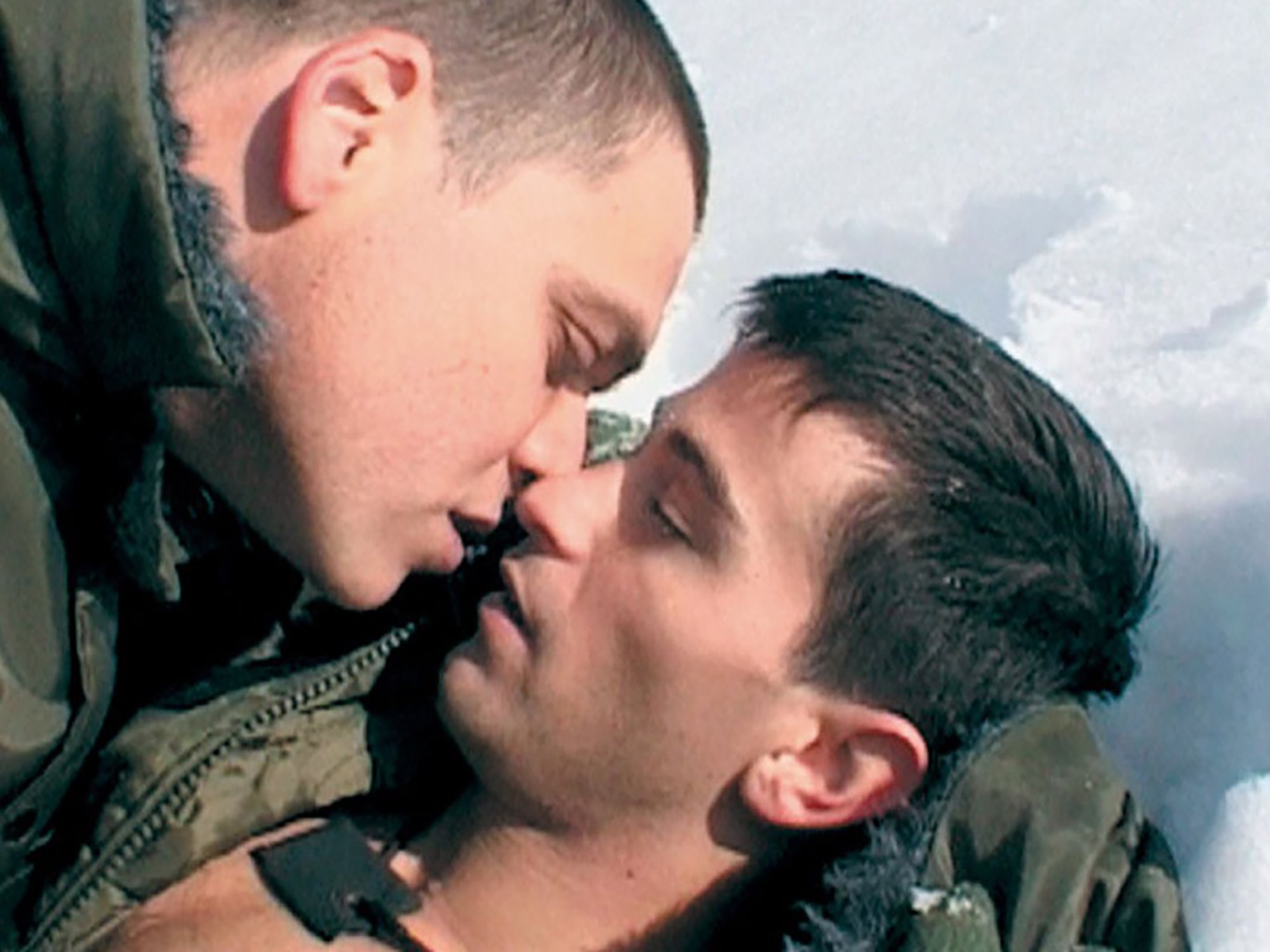
- Film
“Yossi & Jagger”: Director Eytan Fox Reflects on the Israeli Gay Film’s Legacy
Two Israeli Army soldiers hiding their homosexual identity as well as their romantic relationship against the snowy backdrop of the Lebanese border, is the premise of this groundbreaking film.
With a running time of just under 70 minutes, Yossi & Jagger stars actors Ohad Knoller and Yehuda Levi as an Israeli Defense Force commander and one of his squad leaders. While their demeanors might differ, their love for one another goes well beyond the army comradery and remains a secret. Based on a true story, the film explores closeted sexuality, masculinity and societal strains and is regarded as one of the earliest mainstream success stories with significant commercial success, alongside its creative accolades.
Yossi & Jagger initially premiered on Israeli cable television in the fall of 2002 and soon gained popularity and buzz which drove its move to the big screen and abroad. In 2003 it was shown at the Berlin Film Festival, Torino International Gay & Lesbian Film Festival and at the Tribeca Film Festival (then only in its second year), where Knoller won the award for Best Actor in a Narrative Feature Film.
Released in US theaters in September 2003, the film won the GLAAD Media Award for Outstanding Film – Limited Release that year, and to this day remains a cult classic Israeli feature. The prolific director Eytan Fox’s went on to direct more queer drama films, including Walk on Water, The Bubble and the 2012 sequel Yossi, revisiting Knoller’s character a decade later. His most recent film Sublet, starring Tony winner John Benjamin Hickey, is now streaming on Max.
We caught up with Fox via phone from New York, where he is currently working with Emmy and Tony nominated actor Jonathan Groff on an upcoming television series.
How did the idea for the film come about?
I had just come back to Israel after a year in New York and was approached by the head of the Israeli Film Fund about doing a film for cable television. I heard a story about a soldier friend of ours who had a two-year affair during the 1982 Lebanon War with another soldier, a French lone soldier who left his family to join the army and both officers in the same unit.
Back then you couldn’t be out in the very machoistic environment of the Israeli Army. The French soldier was wounded in battle and died in my friend’s arms and that was a terrible loss for him, but what is even more tragic in this specific story is that the family came from France to claim the body, and were introduced to his commander, who praised him without them knowing the true nature of their relationship. It’s the tragedy of someone who cannot truly mourn.
Because in Israel we have a very thorough support system for relatives of the fallen, with financial and psychological help, the entire community rallies around them in honor of those who sacrificed themselves. Yet in that case no one knew about the real bereaved significant other, who was then left alone in the world without anyone knowing how much he loved him. And I made the sequel because of how difficult it was to leave that character in the original film and wanted to let him grieve by himself and publicly.
What was it like releasing a gay film 20 years ago?
There weren’t a lot of films about what we called ourselves, gays and lesbians, not a proclaimed LGBTQ+ community yet. Nowadays you have many films and token queer characters. But back then it wasn’t that common and let alone in Israel. I made a successful TV series in the 1990s called Florentin, which had a few LGBTQ characters and uncommon storylines, but was set around a group of cool, secular and urban Tel Aviv people. As in, nowhere close to dealing with the holy shrine of masculinity that is the Israeli Army.
What does it feel like to be a queer filmmaker in Israel?
When I directed my first short film upon graduating from Tel Aviv University in 1990 called Time-Out, which I got to screen around the world, it was very difficult. Facing film fund committees and explaining how this is my story was just like coming out at the time. But I insisted on making these films again and again and they were successful. And in Israel of all places, supposedly this conservative, religious, militaristic, nationalistic and machoistic state, these films were so embraced. And therefore, it made it easier for me and the generation after me to include more LGBTQ+ stories.
What was the army’s stance?
Army representatives said they won’t support the film, with the politically correct excuse that it depicts a forbidden intimate relationship within army ranks between a commander in a position of power and his subordinate. That meant we wouldn’t get assistance with shooting locations, wardrobe, accessories and things of that nature which the army usually helps productions out with. But we managed on our low budget.
Once the film came out and it was such a huge success, with people lined up outside Tel Aviv Cinematheque hoping to get tickets, the army called me up and asked to screen it to soldiers. And I remember being at a screening for a crowd of soldiers, all of them nervous and anxious in their seats ‘What are they going to show us?’.
At the end I’ll never forget seeing these tough guys shedding a tear over a fallen gay character, acknowledging such love long before films like Brokeback Mountain. It was a significant moment in my career as one of them came up to and said, ‘Bro, by the end I hardly remembered they’re gay’. By today’s standards it’s not something you’d say, but I was not offended. I was tremendously moved by this display of emotions. So, what if it’s two men? It’s a love story.

